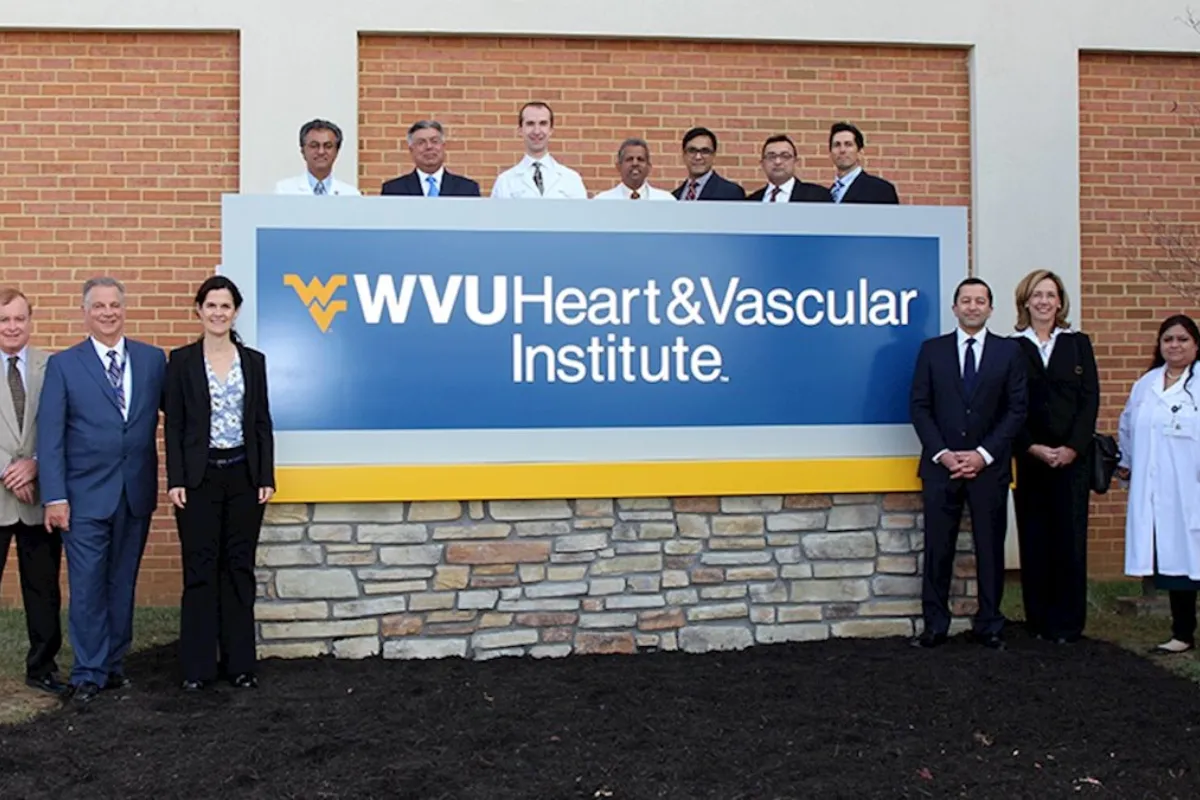In a major development for heart care in the Mid-Ohio Valley, Parkersburg Cardiology Associates is officially joining the West Virginia University Heart and Vascular Institute, a move set to significantly enhance access to world-class cardiovascular services in the region.
This partnership will integrate the well-established Parkersburg Cardiology Associates practice into the WVU Heart and Vascular Institute’s network, providing patients with access to the latest advancements in heart and vascular treatments, cutting-edge research, and nationally recognized expertise — all without having to leave their community.
The practice will continue to operate from its current location on the WVU Medicine Camden Clark Medical Center campus, maintaining continuity for its patients while expanding services and support.
“This partnership marks a significant step in enhancing cardiovascular care for the Mid-Ohio Valley,” said Dr. George Sokos, chairman of cardiology at the WVU Heart and Vascular Institute. “The physicians and staff at Parkersburg Cardiology Associates have built a strong legacy of excellence, and we are excited to work together to bring the latest advancements in heart and vascular care to their patients.”
For nearly ten years, the two organizations have maintained a collaborative relationship, and this formal integration builds upon that foundation. Dr. Vinay Badhwar, executive chairman of the WVU Heart and Vascular Institute, noted the strength of this evolving partnership.
“By working together as one, we bring the full support of the WVU Heart and Vascular Institute to further expand our collective mission of advancing care and service while keeping patients close to home,” Badhwar said. “With our incredible existing partnership with Camden Clark Medical Center across disciplines, together with these excellent cardiologists, our physician leaders will now form the strongest comprehensive center for all aspects of heart, lung, and vascular care across western West Virginia and the Mid-Ohio Valley.”
Parkersburg Cardiology Associates has been a trusted name in the region for more than 50 years. With a team of expert physicians and 11 advanced practice providers, the group has been recognized nationally for excellence in cardiac care.
“Our commitment is and has always been to provide the highest level of cardiac care to our patients,” said Dr. David A. Gnegy of Parkersburg Cardiology Associates. “Joining the WVU Heart and Vascular Institute ensures that we can continue to offer state-of-the-art treatments and further elevate the care we provide to our community.”
This partnership will also strengthen cardiac services at WVU Medicine Camden Clark Medical Center, one of the region’s leading hospitals.
“We are thrilled to welcome Parkersburg Cardiology Associates to WVU Medicine,” said Sean Smith, president and CEO of Camden Clark. “This partnership strengthens our commitment to providing the most comprehensive and advanced heart care in our region, ensuring that our patients receive the best possible treatment close to home.”
The transition is expected to be finalized in the coming months, with no interruption in care. Patients will continue to see their familiar providers in the same location, now with the expanded resources and support of the WVU Heart and Vascular Institute behind them.
This union represents more than just a merger of practices — it’s a promise of better, more accessible care for families throughout the Mid-Ohio Valley.
















